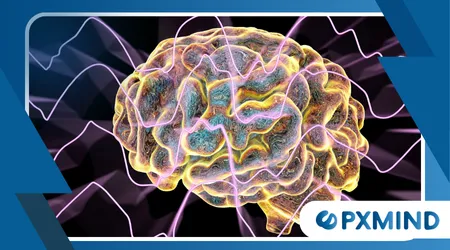Why Sleep Is Essential for Brain Health

Sleep is essential for brain health. Think of your brain not just as a supercomputer, but as a bustling city that never truly sleeps.
Anúncios
Even in repose, its systems are active, diligently carrying out vital maintenance.
During deep sleep stages, cerebrospinal fluid washes through the brain, flushing out metabolic waste products that accumulate during wakefulness.
This crucial “cleansing” process prevents the buildup of potentially harmful proteins.
This nightly detox is paramount. One such waste product is beta-amyloid, a protein implicated in neurodegenerative diseases like Alzheimer’s.
Research continues to underscore the critical role of sleep in its efficient clearance.
Consider a library at closing time. Books are re-shelved, floors are cleaned, and new arrivals are processed.
Similarly, your brain uses sleep to organize memories and consolidate learning.
Memory Consolidation: Locking in Learning
From a neurobiological perspective, sleep acts as a powerful memory enhancer. During the day, our brains acquire vast amounts of new information.
Without a proper night’s sleep, much of this information might simply dissipate.
Imagine trying to remember a complex new skill, like learning a new language, without ever reviewing your notes. Sleep provides that crucial review and consolidation.
Specific brain wave patterns during non-REM (NREM) sleep are instrumental in transferring short-term memories from the hippocampus to the neocortex for long-term storage.
This process is how daily experiences become lasting knowledge.
Emotional Regulation and Mental Well-being
Beyond cognitive functions, sleep is essential for brain health in maintaining our emotional equilibrium. A well-rested brain is far more capable of handling stress and regulating mood.
Lack of sleep can amplify the activity of the amygdala, the brain’s emotional center, leading to heightened anxiety, irritability, and even impulsivity. This makes us more prone to emotional outbursts.
Read here: How Habits Reshape the Brain Over Time
Think about how a lack of sleep can turn a minor inconvenience into a major catastrophe in your mind.
This emotional overreaction is a direct consequence of a fatigued brain struggling to cope.

Synaptic Pruning: Efficiency Through Rest
Our brains are constantly forming and strengthening synaptic connections as we learn and experience. While this plasticity is vital, an excess can lead to inefficiency.
During sleep, a process called synaptic pruning occurs. This is like a gardener selectively trimming branches to ensure the plant grows stronger and healthier.
Weaker or less used connections are pared back.
Read more: How Exercise Boosts Your Brain Power, According to Science
This ensures the brain operates with optimal efficiency, focusing its resources on the most important pathways.
This intelligent streamlining is a testament to why sleep is essential for brain health.
The Cost of Sleep Deprivation
The repercussions of chronic sleep deprivation extend far beyond feeling tired. It impairs judgment, slows reaction times, and significantly diminishes problem-solving abilities.
Consider a truck driver operating on minimal sleep; their risk of an accident dramatically increases due to impaired cognitive function and delayed reflexes.
This real-world example highlights the danger.
Long-term, inadequate sleep is linked to a higher risk of various health issues, including obesity, heart disease, and diabetes.
Its impact on brain health is particularly concerning.
The Glymphatic System: A Nightly Cleanse
The discovery of the glymphatic system, which actively flushes waste from the brain during sleep, revolutionized our understanding of why sleep is essential for brain health.
This system is highly active during sleep.
When we are awake, the brain’s energy is largely directed towards processing sensory information and cognitive tasks, leaving less capacity for waste removal.
This nightly ‘power wash’ is crucial for preventing the accumulation of neurotoxic byproducts, including those associated with neurodegenerative diseases.
++ How Nature Walks Improve Your Mental
According to a study published in Science in 2013 by Dr. Maiken Nedergaard and her colleagues at the University of Rochester Medical Center.
The brain’s glymphatic system expands by up to 60% during sleep, significantly increasing the flow of cerebrospinal fluid to clear waste products.
This striking statistic underscores the dramatic increase in brain clearance during sleep.

Practical Steps Towards Better Sleep
Recognizing that sleep is essential for brain health is the first step. Cultivating good sleep hygiene is the next.
Establishing a consistent sleep schedule, even on weekends, helps regulate your body’s natural sleep-wake cycle.
Creating a relaxing bedtime routine, such as reading or a warm bath, signals to your body that it’s time to wind down.
Avoid screens before bed; the blue light can interfere with melatonin production.
Sleep Quality Metrics
| Metric | Description | Ideal Range |
| Sleep Latency | Time it takes to fall asleep. | 10-20 minutes |
| Sleep Efficiency | Percentage of time in bed spent actually sleeping. | > 85% |
| Wake After Sleep Onset (WASO) | Time spent awake after initially falling asleep. | < 30 minutes |
| Deep Sleep % | Percentage of total sleep time spent in deep (slow-wave) sleep. | 15-25% |
| REM Sleep % | Percentage of total sleep time spent in Rapid Eye Movement (REM) sleep. | 20-25% |
Your bedroom environment plays a significant role too. Ensure it’s dark, quiet, and cool. Caffeine and alcohol, especially late in the day, can disrupt sleep patterns.
Regular physical activity can improve sleep quality, but avoid intense workouts close to bedtime.
Are we truly prioritizing our most vital organ if we consistently deprive it of its fundamental need?
In conclusion, sleep is far more than a passive state of rest; it is an active and indispensable process for maintaining and restoring brain health.
From memory consolidation and emotional regulation to the crucial nightly detoxification, its benefits are profound and multifaceted.
Investing in quality sleep is not a luxury, but a fundamental pillar of neurological well-being, safeguarding our cognitive vitality and mental resilience for years to come.
Prioritize your sleep, and your brain will thank you.
Frequently Asked Questions
1. How much sleep do adults really need?
Most adults need 7 to 9 hours of sleep per night to optimize brain and overall health. The ideal amount can vary slightly among individuals.
2. What is “beauty sleep” and does it really exist?
The term “beauty sleep” refers to the idea that adequate sleep improves physical appearance.
And yes, it does exist! During sleep, the body repairs and regenerates cells, including those in the skin.
Sleep deprivation can lead to dark circles under the eyes, pale skin, and other signs of fatigue.
3. Can I “catch up” on lost sleep on weekends?
While sleeping more on weekends can help alleviate some symptoms of sleep deprivation, it’s not an effective substitute for consistent, quality sleep.
Accumulated sleep debt affects the body in ways that one or two days of extra sleep cannot fully reverse.
4. Are daytime naps beneficial for brain health?
Yes, short naps (20-30 minutes) can be very beneficial for improving alertness, performance, and mood.
However, naps that are too long or too close to bedtime at night can disrupt nocturnal sleep.
5. What are the signs that my brain isn’t getting enough sleep?
Common signs include difficulty concentrating, memory lapses, irritability, excessive daytime fatigue, increased appetite, and difficulty making decisions.
In the long term, sleep deprivation can lead to more serious health problems.
++ Why Do We Need Sleep?
++ Why do people sleep? A new study points to the brain
